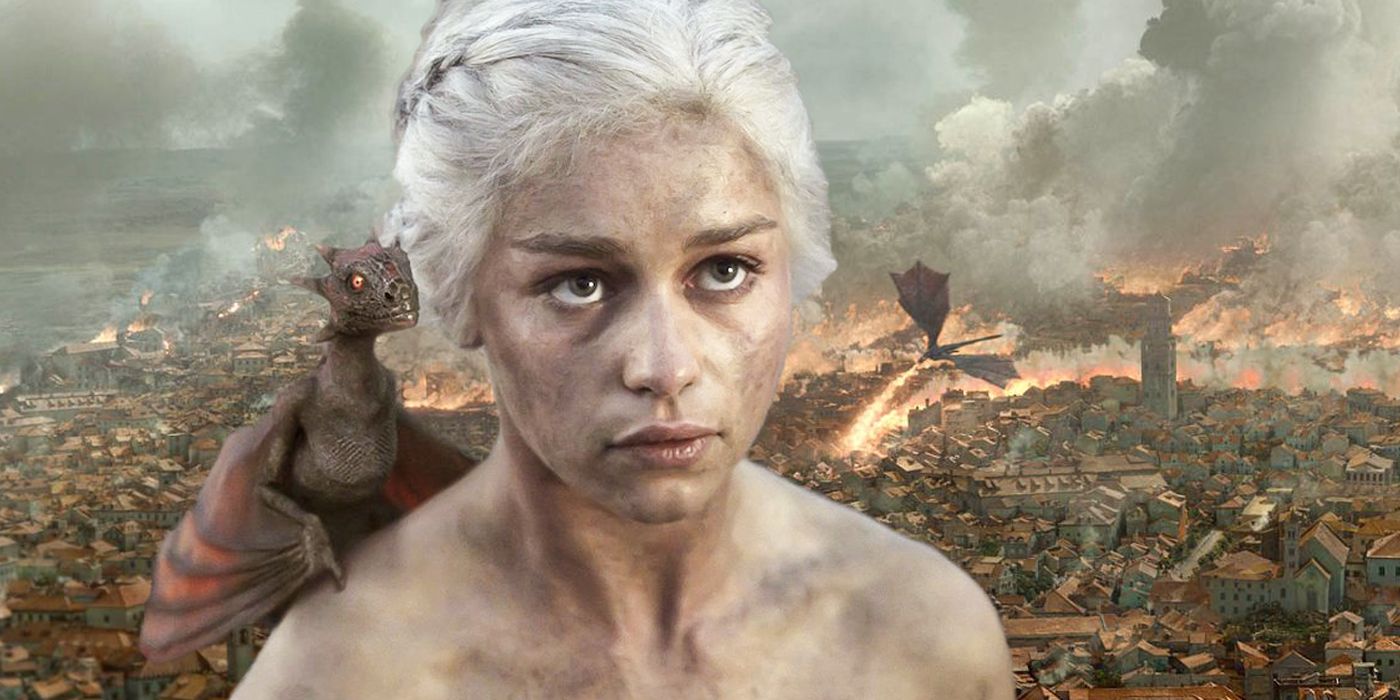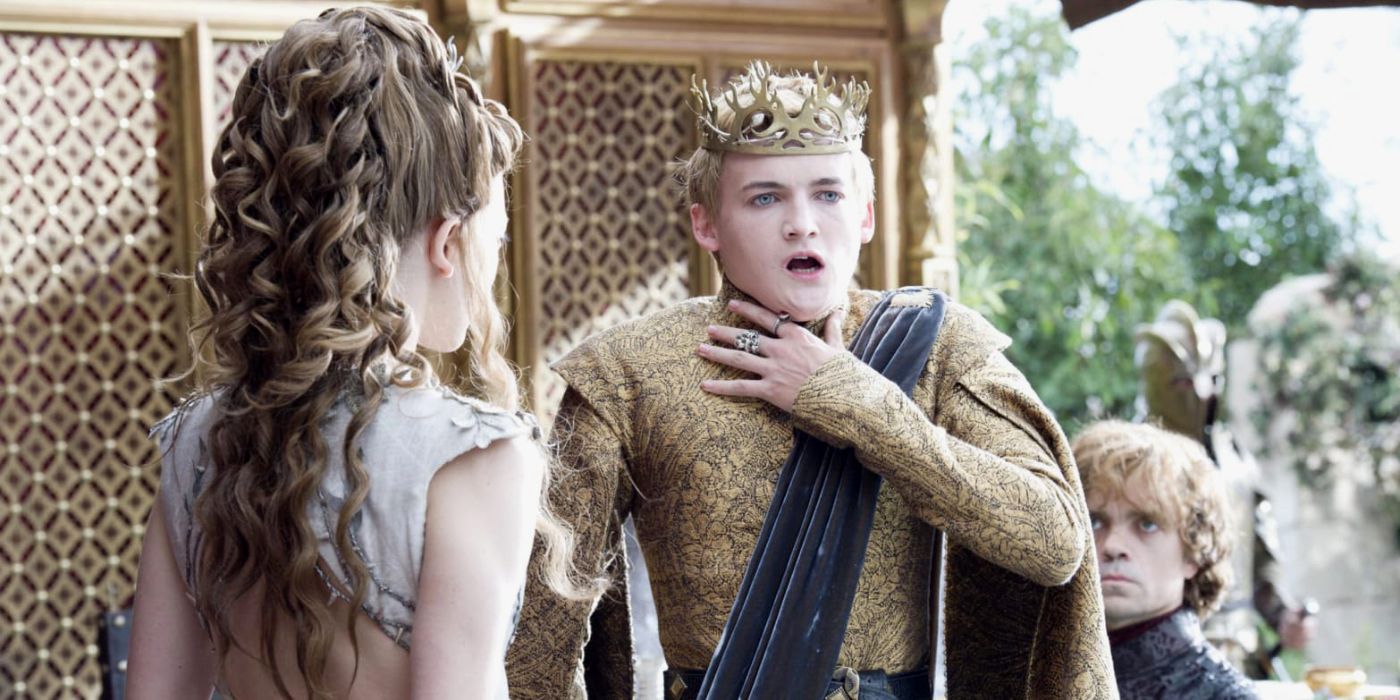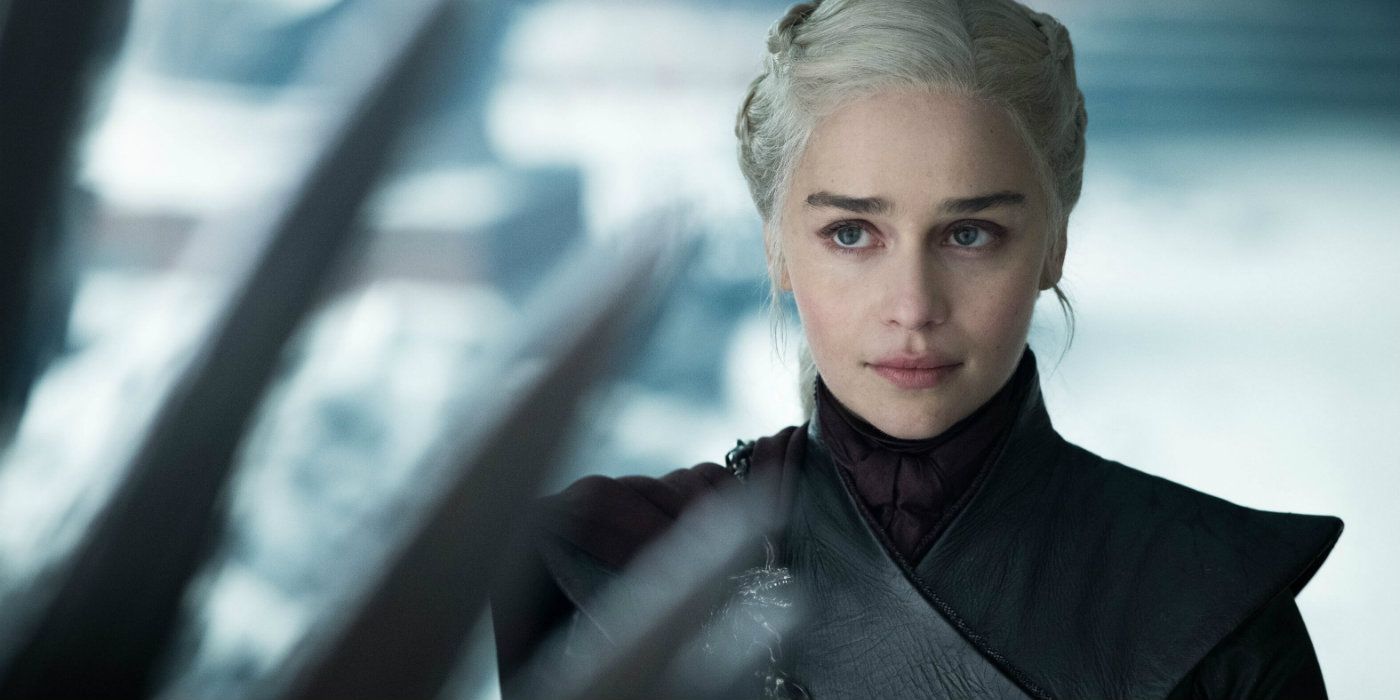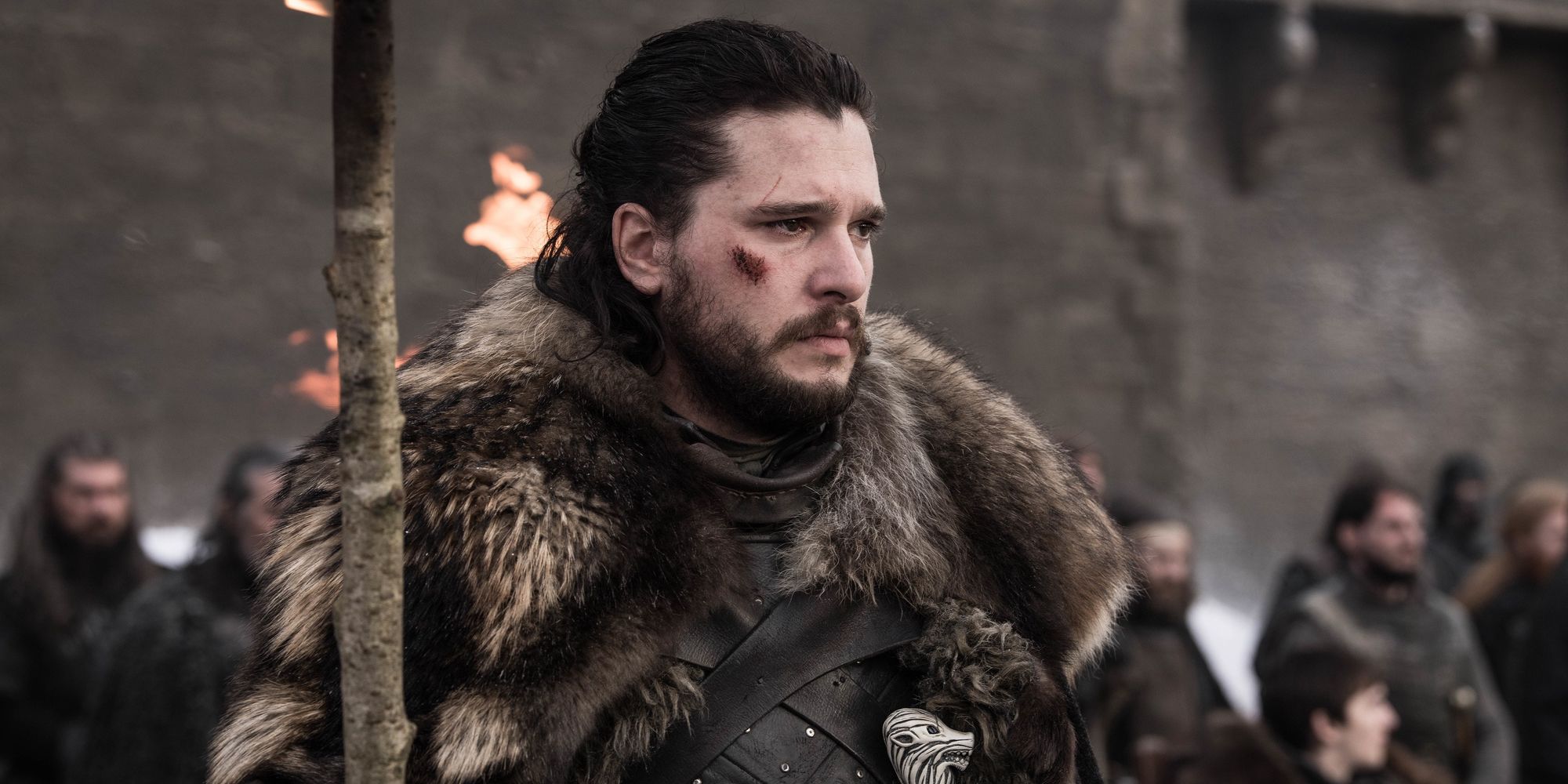Game of Thrones season 8 killed the Lannisters, Daenerys Targaryen, the Clegane brothers and many more, but did it also strike a keen blade through the show's rewatch value? The HBO adaptation of George R.R. Martin's A Song of Ice & Fire novels was fantasy television like nothing the small screen had ever experienced. With budgets growing faster than Daenerys' dragons and an ensemble cast (be)headlined by Sean Bean, Game of Thrones gave fans the full Tolkien experience but with blood, breasts and bureaucracy, as the noble houses of Westeros lined up to claim the Seven Kingdoms for themselves, and win the so-called Game of Thrones.
To say that Game of Thrones became a worldwide sensation the likes of which television has rarely seen is no exaggeration. So all-encompassing was the show's popularity that previously unknown names like Emilia Clarke and Kit Harington have since become A-list Hollywood stars, and at the height of Game of Thrones fever, viewers were probably more familiar with the intricate political dealings of King's Landing and their own country's government. David Benioff and D.B. Weiss were hailed as visionaries, George R.R. Martin's audience multiplied, and it quickly became impossible to say the word "bastard" in anything but a gruff Sheffield accent.
For much of its run, Game of Thrones achieved the rare balance of mainstream popularity mixed with critical acclaim, but as the end loomed, reactions became more and more muted, both on social media and in reviews. After so long as the undisputed ruler of television, Game of Thrones season 8 will go down as one of the most divisive TV endings in history, and while some valiantly defend Benioff and Weiss' conclusion from the disgruntled masses, others maintain that, at the very least, Game of Thrones' final season didn't live up to the show's own high standards. Over a year later, what impact has this had upon Game of Thrones' rewatch value?
Game Of Thrones Was Box Set Heaven (Before Season 8)
Where most TV shows start strongly only to see their viewership level out over time, Game of Thrones got bigger and bigger with each season. Even more impressive was how each season's finale scored significantly more viewers than the premiere only a few months prior, highlighting how fans were jumping on the GOT bandwagon at every juncture. This phenomenon can be attributed to two things - the word-of-mouth power that carried Game of Thrones to glory, and the shameful ease with which one could binge the entire chronicles of Westeros so far. Once peer-pressured by a friend or co-worker into watching Game of Thrones for the first time, the bug wouldn't let go until the victim was all caught up, sitting on their couch with a broadsword and fur cloak, waiting eagerly for next season to release. Game of Thrones was the very definition of box set television - impossible to consume in moderation.
Certainly in the earlier seasons, Game of Thrones was also incredibly rich with detail. The gargantuan cast, political maneuverings, and subtle historical context made appreciating the depth and complexity of Westeros all-but-impossible in a single sitting. An Easter egg here, a foreshadowing line there, stray genitals in the background - Game of Thrones, for much of its time on screen, rewarded viewers greatly for multiple viewings.
With so much hidden detail and the most binge-worthy story this side of the Narrow Sea, Game of Thrones begged to be watched over and over in the years following its conclusion. In truth, some fans were looking forward to the ending simply because they couldn't wait to start again and relive the whole epic tale in full, with no soul-achingly long interruptions between each season. In 2021, however, Game of Thrones perhaps isn't the rewatch hit many were expecting and hoping it would be.
Why Game Of Thrones Season 8 Was So Divisive
The overriding factor behind Game of Thrones season 8's backlash is a lack of time. HBO announced the eight-season limit years in advance, and many were surprised at just how nigh the end was, with huge chunks of story still to tell. Even George R.R. Martin has since acknowledged that Game of Thrones should've run for an additional two seasons. But instead of continuing the show's traditional slow build, Benioff and Weiss shifted into high gear, and the rush of story threads begging for resolution led to inconsistencies that fans are still sore about today.
When discussing the issues that plague Game of Thrones season 8, conversation inevitably turns towards Daenerys Targaryen and her roast of King's Landing. Although Dany had shown an inner darkness before, her heel turn represented a sharp change of direction for the Mother of Dragons. And with Bran Stark becoming King, Cersei and Jaime being killed by rocks, and Varys scorched unceremoniously, Game of Thrones' took its biggest characters in controversial directions that didn't fit with their existing personalities, leaving some viewers scratching their heads. In turn, these confusing character developments rendered plots that had been in motion for years meaningless. For example, Jon Snow's Targaryen heritage, the most prominent source of theory and intrigue in the entire story, had minimal impact on the bastard's fate, or the future of Westeros as a whole.
Lapses in story and character were compounded by visual mistakes that should've been avoided. Even the best TV shows are prone to gaffes (see The Mandalorian's man in jeans), but with Game of Thrones season 8 already under heavy fire, leaving a coffee cup in the grand hall of Winterfell makes for an easy target - and isn't a great look for a show spending over $10 million per episode. Similarly, the Battle of Winterfell's confusing logistics and strategy were worsened by deep, dark cinematography that left viewers straining to see the action.
Season 8 Hurt Game Of Thrones Rewatch Value
Where Game of Thrones once looked to be a surefire box set classic for years to come, season 8's infamous reputation appears to have killed those hopes - or at least left them seriously wounded. Any time a show ends badly, the rewatch value is negatively affected, simply because the viewer can see the acute disappointment waiting to ambush them at the end. However, a bad ending doesn't always spoil what came before. Supernatural recently wrapped with a highly divisive finale, but the fandom still has 14 seasons of adventure to look back on fondly - the show's episodic structure keeping the rewatch value alive. Lost's ending was another tricky finale that triggered wars at the water cooler, but fans still "have to go back" to dissect the secrets of the Island, trying to make sense of it all.
While episodes can still be enjoyed in isolation for their action, acting and drama, Game of Thrones isn't so fortunate. George R.R. Martin's fantasy series poses the same questions from its very first episode. Who would sit on the Iron Throne? Who will survive? Can Daenerys Targaryen avenge her family? Because it's these central points of intrigue that carry the narrative throughout, the disappointing answers tarnish the entire show. There's no episodic structure that allows Game of Thrones season 3 to be enjoyed as a self-contained story, and no natural ambiguity that leaves the audience wanting to explore further. Game of Thrones was always going to succeed or die by its core plot points.
And those central plot points revolve exclusively around character - the most potent weapon in Game of Thrones' arsenal. What makes Game of Thrones' earlier seasons so easy to binge isn't the impressive battle sequences or the promise of inevitable nudity, but the strength of its characters - rooting for Jon Snow, passionately hating Joffrey Baratheon, trying to figure out when you started liking Jaime Lannister, etc. Had Game of Thrones season 8 fallen foul in terms of pace, production and storytelling but done right by its characters, the show as a whole would've still made for a compelling box set rewatch. But with character endings the one problem every Game of Thrones' ending conversation returns to, fans are understandably reluctant to dig back into those earlier seasons. Why invest so heavily in Bran Stark as the Three-Eyed Raven when the payoff is so lightweight? Why get so angry at Cersei Lannister when she never truly gets her comeuppance? And how can the Night King be feared when his end comes so easily?




